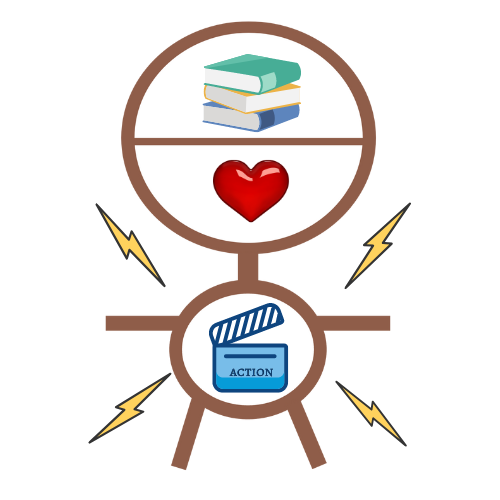Sustainable Transformation:
In today’s rapidly evolving world, sustainability has become a critical issue that extends beyond the environmental context—it encompasses the social and economic frameworks that shape our lives. At the heart of this transformation is the notion of personal development, a concept that "Authentic & Brave Coaching" has leveraged to create a profound impact on individuals and, consequently, on the broader global community. The coaching programs offered by Merete Stangeland and her team do more than just foster personal growth; they lay the groundwork for sustainable lifestyles and ethical business practices that benefit both people and the planet.
Personal Transformation and Environmental Sustainability
Authentic & Brave Coaching’s approach to sustainability starts with the individual. By helping clients overcome challenges like low self-esteem and addiction, the coaching encourages healthier lifestyles which naturally lead to more sustainable living choices. Clients learn to value themselves and their surroundings, which often results in a more mindful consumption of resources and a reduced ecological footprint. These changes are not just about reducing waste but about fostering a deep-seated respect for the environment through the adoption of less wasteful lifestyles.
Moreover, the development of self-discipline and self-awareness taught in programs like “Thinking into Results” cultivates behaviors that are crucial for long-term sustainability. Clients become advocates for their well-being, which parallels the skills needed to advocate for environmental health, demonstrating the intrinsic link between personal welfare and environmental stewardship.
Professional Development and Sustainability in the Workplace
In the realm of professional development, Authentic & Brave Coaching emphasizes the importance of ethical business practices and workplace efficiency. The focus on understanding human nature enhances workplace dynamics, leading to more ethical interactions and decision-making. This not only helps businesses reduce their resource exploitation but also improves their overall workplace environment, making them more sustainable in the long run.
Reducing workplace stress and enhancing employee satisfaction are direct benefits of effective coaching. These factors contribute significantly to decreasing a company’s environmental impact by reducing employee turnover and the resources spent on training new staff. Moreover, satisfied employees are more likely to engage in company-wide sustainability efforts, driving further environmental benefits.
Community and Social Impact
The empowerment of individuals, especially women, to use their voices authentically has the potential to catalyze significant social change. By encouraging women to take leadership roles and advocate for themselves and their communities, Authentic & Brave Coaching contributes to greater gender equality and social justice. These changes can lead to stronger community ties and increased engagement in local environmental and social initiatives, demonstrating how personal empowerment directly affects broader societal health and sustainability.
Economic and Global Impacts
On an economic level, the coaching services help foster a mindset that values sustainable growth over unchecked progress. Clients learn to make informed consumer choices that align with their values, often prioritizing sustainability. This shift in consumer behavior can push businesses to adopt more sustainable practices, creating a market where environmental and social responsibility becomes a competitive advantage.
Furthermore, the global reach of Authentic & Brave Coaching means these values are shared across different cultural contexts, enhancing global understanding and cooperation. This is crucial for tackling worldwide challenges such as climate change, proving that personal development and global sustainability are interconnected.
Conclusion
Authentic & Brave Coaching goes beyond the traditional boundaries of personal coaching to address one of the most pressing issues of our time: sustainability. By focusing on individual empowerment and linking it directly to environmental and social welfare, Merete Stangeland’s approach not only transforms lives but also fosters a culture of sustainability that can lead to significant global change. Through its commitment to developing self-aware, empowered individuals, Authentic & Brave Coaching is setting the stage for a more sustainable world, where personal well-being and environmental health are inextricably linked.
Resources and scientific facts:
The Psychology of Sustainability and Environmental Responsibility:
Resource: Stoknes, P. E., & Rockström, J. (2018). "Transforming psychology to support sustainable development." In this study, the authors discuss how psychological principles can be used to foster sustainable behaviors and attitudes.
Fact: Psychological interventions that focus on personal values and self-awareness have been shown to increase pro-environmental behaviors.
Workplace Sustainability and Employee Engagement:
Resource: Laszlo, C., & Zhexembayeva, N. (2011). "Embedded Sustainability: The Next Big Competitive Advantage." This book provides insights on how companies can integrate sustainability into their core activities and how it improves employee engagement and corporate performance.
Fact: Companies with strong sustainability programs have 55% better employee morale and 43% more efficient business processes.
Impact of Mindfulness and Self-awareness on Decision Making:
Resource: Suttie, J. (2016). "How Mindfulness Can Help Engineers Solve Problems," Greater Good Magazine. The article discusses how mindfulness practices improve cognitive flexibility and creative problem-solving skills.
Fact: Mindfulness training can enhance focus and decision-making, leading to more sustainable choices in personal and professional contexts.
Economic Impacts of Sustainable Practices:
Resource: The Ellen MacArthur Foundation report on the circular economy highlights how sustainable business practices can lead to substantial economic benefits across sectors.
Fact: Companies that adopt sustainable and circular economy practices can unlock $4.5 trillion in economic growth opportunities by 2030.
Gender Equality and Economic Sustainability:
Resource: McKinsey & Company (2015). "The power of parity: How advancing women’s equality can add $12 trillion to global growth." This report details the economic impacts of gender equality in work and society.
Fact: Advancing women’s equality can contribute up to $12 trillion to global GDP by 2025.
Global Reach and Cultural Sensitivity in Sustainability:
Resource: United Nations Sustainable Development Goals (SDGs). These goals provide a framework for addressing global challenges that include environmental sustainability, gender equality, and economic growth.
Fact: Effective implementation of the SDGs requires cultural sensitivity and local adaptation of global norms and practices.

